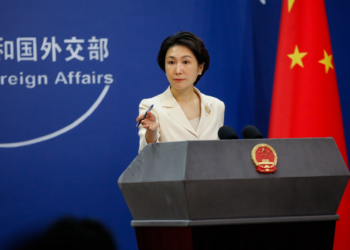China’s Tiangong Space Station is poised to host its first Pakistani astronaut, marking a pivotal moment in the nations’ decades-long strategic partnership. This milestone follows the successful launch of the Shenzhou-20 crewed spacecraft on April 24 from the Jiuquan Satellite Launch Center, which transported three Chinese astronauts—Commander Chen Dong, Chen Zhongrui, and Wang Jie—to the orbital facility. The trio will relieve the current crew, who have spent 175 days aboard the station since their arrival in October 2023.
The inclusion of a Pakistani astronaut in a future mission, slated for 2026 under the China-Pakistan Space Cooperation Framework, underscores deepening bilateral ties. A landmark agreement signed on February 28 between the China Manned Space Engineering Office (CMSE) and Pakistan’s Space and Upper Atmosphere Research Commission (SUPARCO) formalized the collaboration. The “Cooperation Agreement on the Selection, Training of Pakistani Astronauts and Participation in China’s Space Station Flight Mission” outlines a rigorous selection process mirroring China’s standards, with preliminary screenings in Pakistan and advanced training in China. Two final candidates will undergo preparation at Chinese facilities, with one ultimately participating as a payload specialist conducting scientific experiments for Pakistan.
Prime Minister Shehbaz Sharif hailed China as Pakistan’s “most reliable and strategic partner,” emphasizing Beijing’s role in advancing Islamabad’s space technology aspirations. “This partnership is a touchstone for Pakistan’s scientific progress,” he stated.
The Shenzhou-20 mission exemplifies China’s commitment to peaceful space exploration and international cooperation. “Our manned space program adheres to principles of mutual benefit and shared development,” noted the China Manned Space Agency (CMSA).
Since 2019, the nations have inked 12 space-related agreements, including joint ventures in satellite development, lunar exploration, and ground infrastructure. Projects like the Comsat-1R, Remote Sensing Satellite-1, and the 2024 Multi-Mission Communications Satellite have revolutionized Pakistan’s telecommunications and Earth observation capabilities. Additionally, over 200 Pakistani space professionals have received training in China, supported by three jointly established R&D centers.
The upcoming astronaut mission not only elevates Pakistan’s space ambitions but also positions China’s Tiangong as a hub for global collaboration, with the Pakistani astronaut set to become the first foreign national to visit the station. “This initiative sets a precedent for international participation in China’s space endeavors,” affirmed CMSE representatives.
As Pakistan celebrates this leap in its space journey, the mission symbolizes a new chapter in Sino-Pakistani innovation, blending technological prowess with enduring diplomatic camaraderie.
















